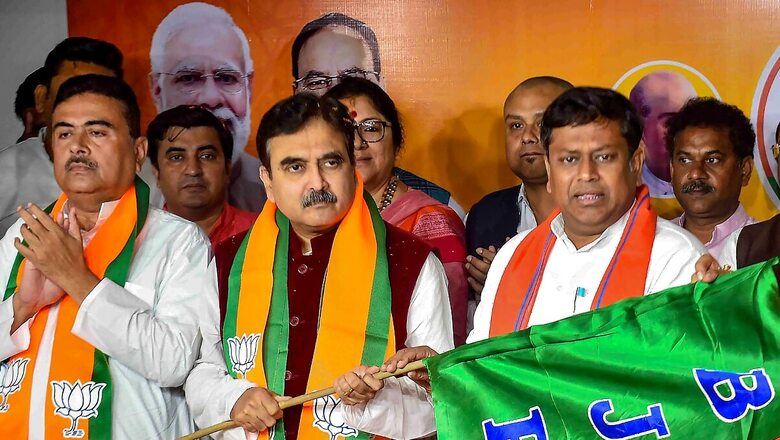
views
He was mobbed for selfies at a book fair. Desperate job seekers would turn up at his residence late at night as the “last resort for justice”. Abhijit Gangopadhyay was akin to Anil Kapoor’s no-nonsense chief minister in the 2001 movie Nayak, ruling tough on scams and sending top ministers to jail, showing no signs of slowing down. Only, Gangopadhyay did it as a judge of the Calcutta High Court while fishing for bigger catch.
So why is it so surprising that the well-behaved but aggressive Bengali Bhadralok in his early sixties quit the courtroom and joined politics with the BJP five months before his retirement? He has always maintained that “the job” is not done yet.
After all, this is not the first time a judge has joined politics.
Baharul Islam was a member of the Congress party who resigned from the Rajya Sabha to become a judge of the Gauhati High Court. After he retired as the Chief Justice of the HC, he was made a judge of the Supreme Court. He later resigned from the Supreme Court to contest elections and became a Rajya Sabha member again. If that didn’t unsettle the conscience of the society, why make an issue out of Abhijit Gangopadhyay, famous for his anti-corruption stance, joining the BJP after quitting legal service?
If you think Islam’s was a one-off incident, think again.
After his stint as a judge, MC Chagla, a judge of the Bombay High Court, served as India’s education minister from 1963 to 1966 and then as the external affairs minister till September 1967.
Mohammad Hidayatullah was the Chief Justice of India from 1968 to 1970. He served as the Vice-President of India for a brief while in 1969 when President Dr Zakir Hussain died. Technically speaking, Hidayatullah was India’s Vice-President while he was India’s Chief Justice.
Though an independent MLA, VR Krishna Iyer served as a minister in Kerala’s Communist government. But that didn’t stop him from becoming a Supreme Court judge. A person with political affiliation serving as a judge should have been a far more serious issue than a judge resigning and then accruing political affiliation.
Congress national spokesperson Dr Shama Mohamed took to X (formerly Twitter) to suggest “quid pro quo” citing Gangopadhyay’s previous rulings “against the state government”, which is led by the Trinamool Congress. But what she seems to have forgotten is that Supreme Court judge BR Gavai admitted in open court that he comes from a political background. During the hearing on Rahul Gandhi’s disqualification from Parliament, Justice Gavai offered to recuse, citing his family’s connections with the Congress party.
Yes, Abhijit Gangopadhyay didn’t go for a cooling-off period which wouldn’t have given rise to such questions. He should have. But is it worse than Baharul Islam shuttling from the Rajya Sabha to the High Court, then to the Supreme Court and back to Rajya Sabha again?
In 2012, as the Leader of Opposition, BJP leader Arun Jaitley made a speech at BJP’s legal cell that made heads turn. “There are two kinds of judges – those who know the law and those who know the Law Minister.” Not holding back, the otherwise diplomatic Jaitley added: “Pre-retirement judgments are influenced by post-retirement jobs.”
Nitin Gadkari had previously suggested a two-year mandatory cooling-off period, something that was mocked by the Congress at the time.
Meanwhile, the collegium to appoint judges has appointed persons with political backgrounds even in the recent past. Take retired CJI Ranjan Gogoi, for instance, whose father was a former chief minister of Assam. The National Judicial Appointments Commission was binned by the Supreme Court, but the collegium is not perfect either.
Abhijit Gangopadhyay isn’t the first judge to join politics and won’t be the last either.




















Comments
0 comment